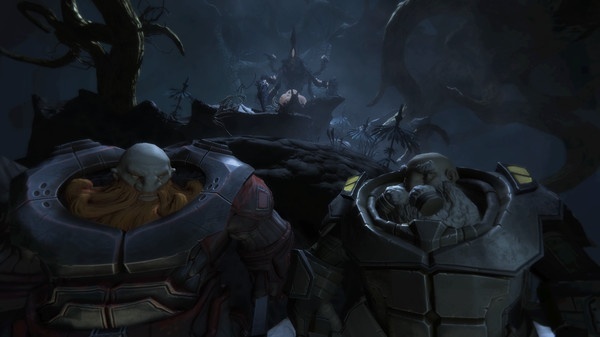We Are The Dwarves (PC) Review
By Eric Ace  30.03.2016
30.03.2016

We Are The Dwarves has to overcome the unfortunate fact that the mix of genres it offers sounds interesting in theory but very likely leaves its intended crowd far out of the loop. At best, it is an interesting take on fantasy, with small-scale squad combat reminiscent of games like Jagged Alliance or X-Com, but at its worst, it is a frustrating nightmare of repetition due to punishing difficulty.
We Are The Dwarves has a lot of novelty going for it, but falls so quickly into modern gaming conventions and tropes that it becomes tough to recommend. Within the last couple of years, it has become all the rage to have difficulty 'cranked up to 11' due to the reality of games becoming easier as consoles went on, especially compared to the 'Nintendo Hard' years.
This perverted conception that a game becomes 'good' if it is hard to beat has resulted in designers taking the unusual course of making games so hard that it becomes their selling point. One would think the bad reviews games like this tend to get would signal that this is not a good design choice, but titles like this one still come out, following the horrendous pattern of 'perfection or death'.

We Are The Dwarves has an original story to start off: it's a futuristic fantasy where dwarves live underground, but their star is burning out, so they must dig down to a new world to find a new star. It doesn't make sense, I know, but it's kind of cool and sets up the subterranean adventure well enough. Crawling endless caves gets old, but initially, it's sufficient.
The game is presented isometrically in a small squad setting. There are three dwarves that form the party: a melee guy, a ranged guy, and a support guy. Each of them has a few special abilities, like using a shotgun for a wide-range attack. The enemies are forgettable hordes who often, with good luck, can be blown away easily. But in most circumstances, it is the player that gets rocked instead, which brings us to the major problem.

The game tries to bring in some very complicated realism, such as sight lines, sound, and similar things reminiscent of Metal Gear Solid, which works in a game that is entirely based around sneaking. This game becomes more of a puzzle that is only solved by luck and pure trial and error. An enemy suddenly sees or hears the dwarves and kills them very rapidly; a wrong enemy is hit with a ranged attack, and its friend also sees this and sounds the alarm; using the shotgun blows you back enough to fall off the edge - these kind of things happen very, very frequently and only serve to annoy and disrupt the fun.
For a very narrow niche of gamers that like puzzle games and masochistic difficulty, this would be their type of game. Strategy or tactics fans, however, will be so off-put by the lack of intelligible paths forward that they will quickly sideline it.

Diablo and X-Com seem similar to isometric tactical titles on the surface, but they help demonstrate everything wrong with this game. Those games were hard but beatable, with multiple ways through the challenges. We Are The Dwarves follows the new convention of requiring every move to be perfect, and only a single narrow path exists for how to win. There is no learning what works from previous attempts or clues. It's just try-and-die until you make it to the next checkpoint.
The frustration with this random and unknowable experience is hard to understate. Diablo and X-Com can metaphorically be like playing chess against a guy that has extra pawns or rooks. It is an uphill battle but it is still possible. This game is like the chess example except the other player's units can jump over everything and nuke entire sectors of the board - and you never know this until it happens, and the only lesson is one of being subject to random pain.

Cubed3 Rating
Subpar
We Are The Dwarves on paper sounds like it might be interesting to fans of isometric tactical combat, and players of similar games might be hungry for more of the same. In practise, though, it's nothing more than a sad rehash of new (and bad) game design that replaces depth with death. It that demands the player perform random acts that usually results in restarts at the nearby checkpoint, while occasionally, luck comes out in their favour, and they can move on to do more of the same. Fans of perhaps masochistic and random puzzles may paradoxically find a squad tactics game like this interesting, but others lured in by its veneer of a RTS/squad game are unlikely to find anything recommendable among the annoyance.

![]() 4/10
4/10
![]() 0
(0 Votes)
0
(0 Votes)
 Out now
Out now  Out now
Out now  None
None  Out now
Out now Comments
Comments are currently disabled

 Sign In
Sign In Game Details
Game Details Subscribe to this topic
Subscribe to this topic Features
Features





 Top
Top

